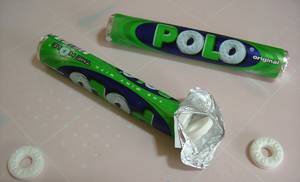US scientists have unlocked the secret of how the nervous system senses low temperatures, discovering in the process why sucking a mint makes your mouth feel cold.
Writing in Nature, David Julius, from the University of California San Francisco, found that mice lacking a gene called TRPM8 ceased to react to low temperatures. When offered a choice of a warm or cold surface, the TRPM8-deficient mice would spend significantly longer sitting in the cold than normal control animals.

The missing gene encodes a pore which sits in the membrane of a specific class of cold-sensitive nerve fibres. When the nerve is cooled down the pore changes shape, triggering the production of excitatory nerve impulses that are relayed to the brain. The pore is also activated by menthol, which provokes the pore to change shape at much higher temperatures than it would normally, explaining why sucking a mint makes your breath feel cold against the back of your mouth.
But "Polos" making your mouth cold isn't the "hole" story because the mice weren't entirely cold-insensitive. Taking the temperature down below 10 degrees C resulted in an increase in nerve activity again, suggesting that there might be a further "extreme cold" receptor waiting to be discovered, or that at these low temperatures the physical damage done to tissue is enough to trigger other pain pathways.
Either way, researchers hope that by understanding the workings of these sensory nerve pathways they will be able to design better drugs to block pain syndromes including those triggered by exposure to the cold.
- Previous Gotta Lotta Bottle
- Next Trees taught us to walk










Comments
Add a comment